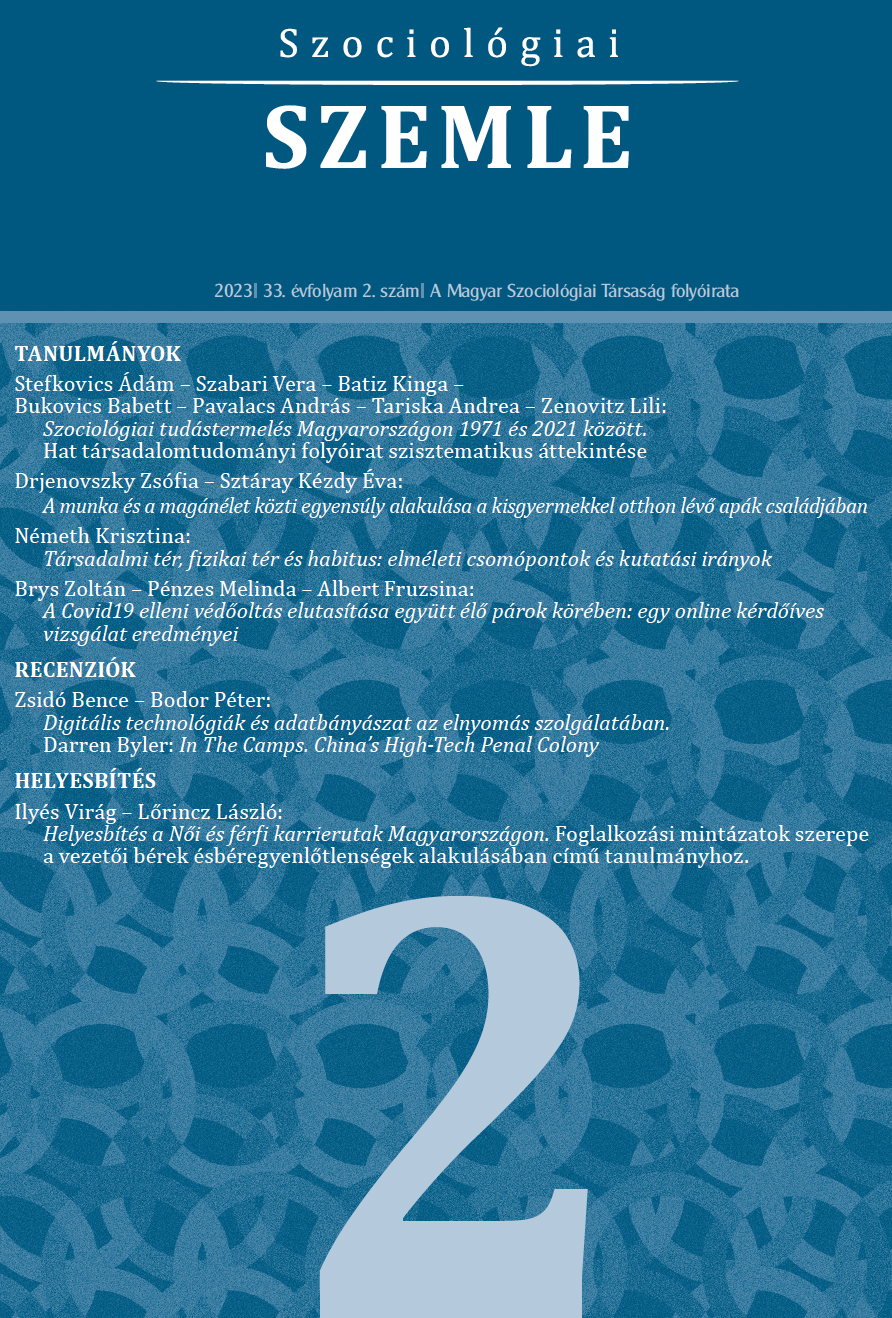Work-life Balance in Stay-at-home Fathers’ Families
Abstract
The investigations of the work-life conflict of parents with young children often take for granted that this is rather a ‘female issue.’ However, the problematic coordination of career and family life affects not only the mother but also the organization and functioning of the family as a whole, meaning that the mother’s labour market decisions are closely related to the father’s similar ones. In Hungary, since 1982 the widening range of shared parental leave enables fathers to remain at home with their children until up to three years. However, statistics show that among the changing gender roles, the burden of childcare in the Hungarian society is borne mostly by women. There is just an astonishingly small rate of fathers who have taken advantage of childcare benefits. In our research, based on 31 semi-structured in-depth interviews we focus on the fatherhood. Notedly, the special group of fathers volunteering to stay at home while the mother has a paid job. The main question of our qualitative research is how and to what extent can engaged fatherhood mitigate the work-life conflict of the parents. This question was specifically examined by the time the father spent at home with his younger child, both parents’ attitude to work and the labour market situation, which led us to the elaboration of a characteristic family pattern typology.





